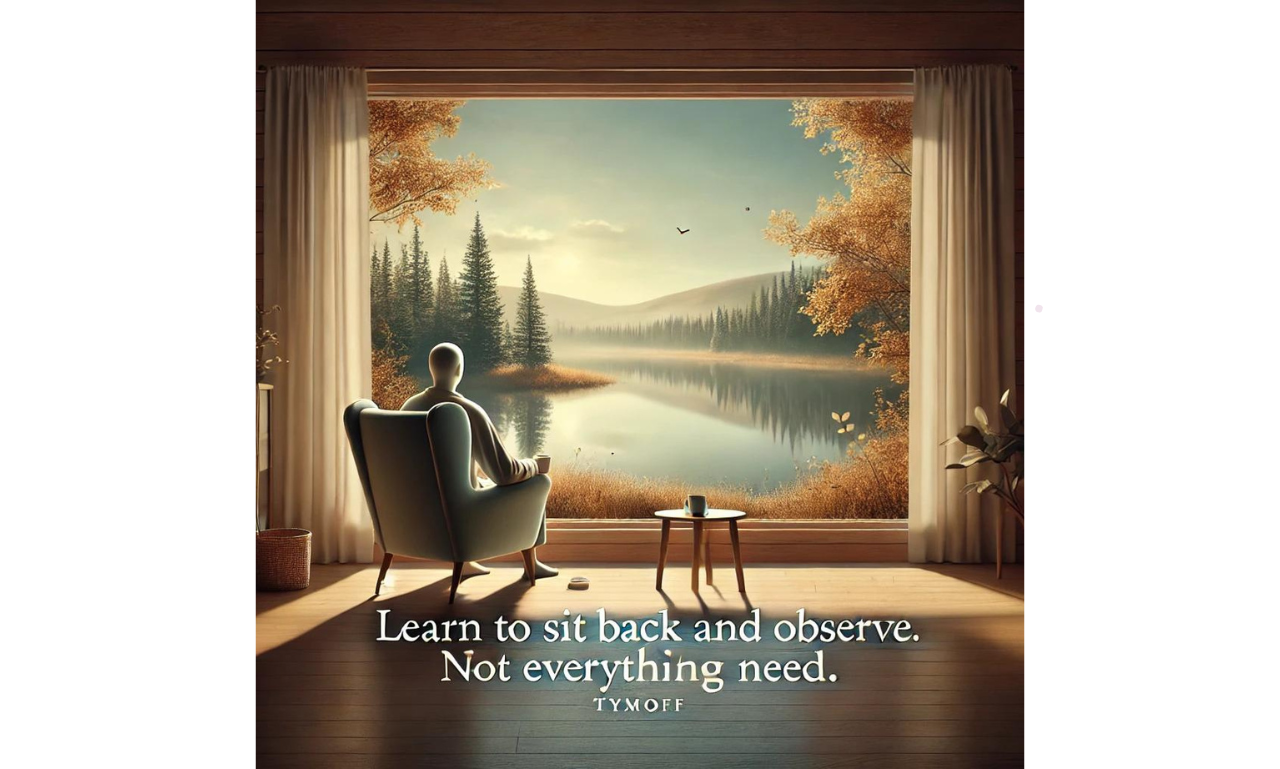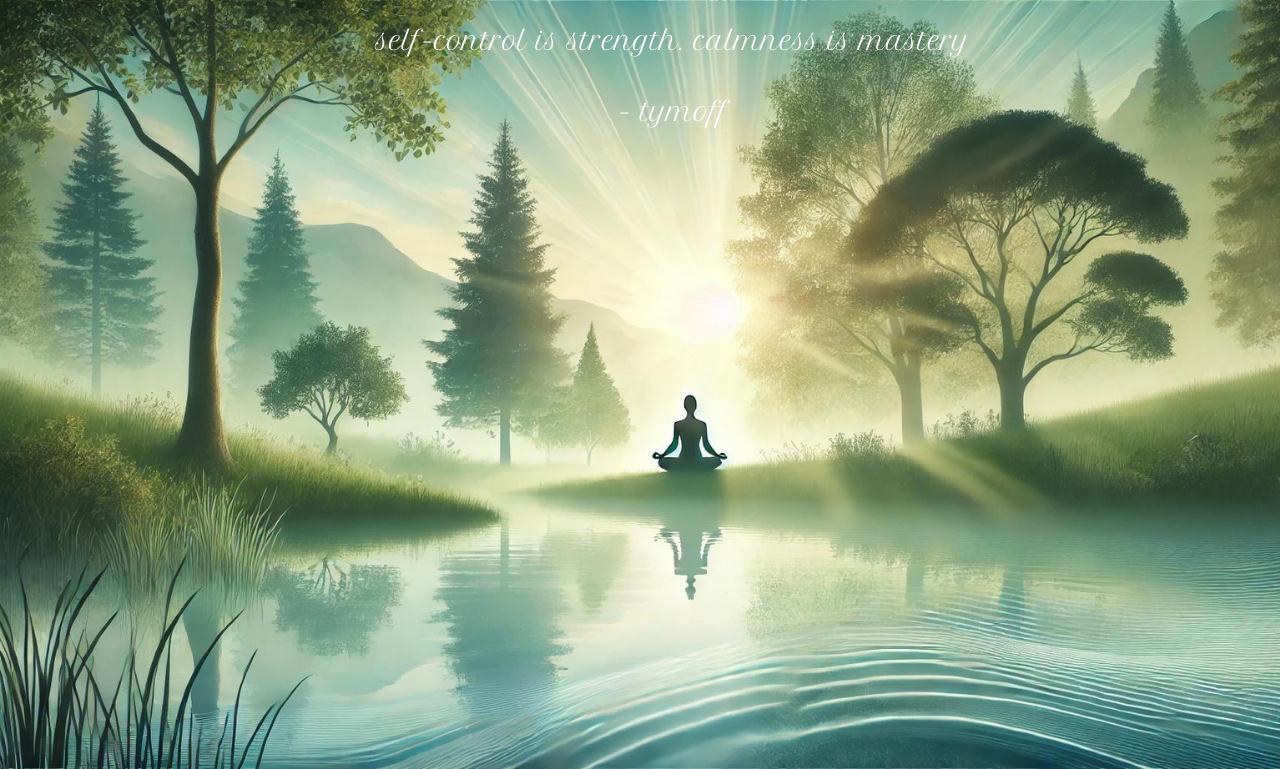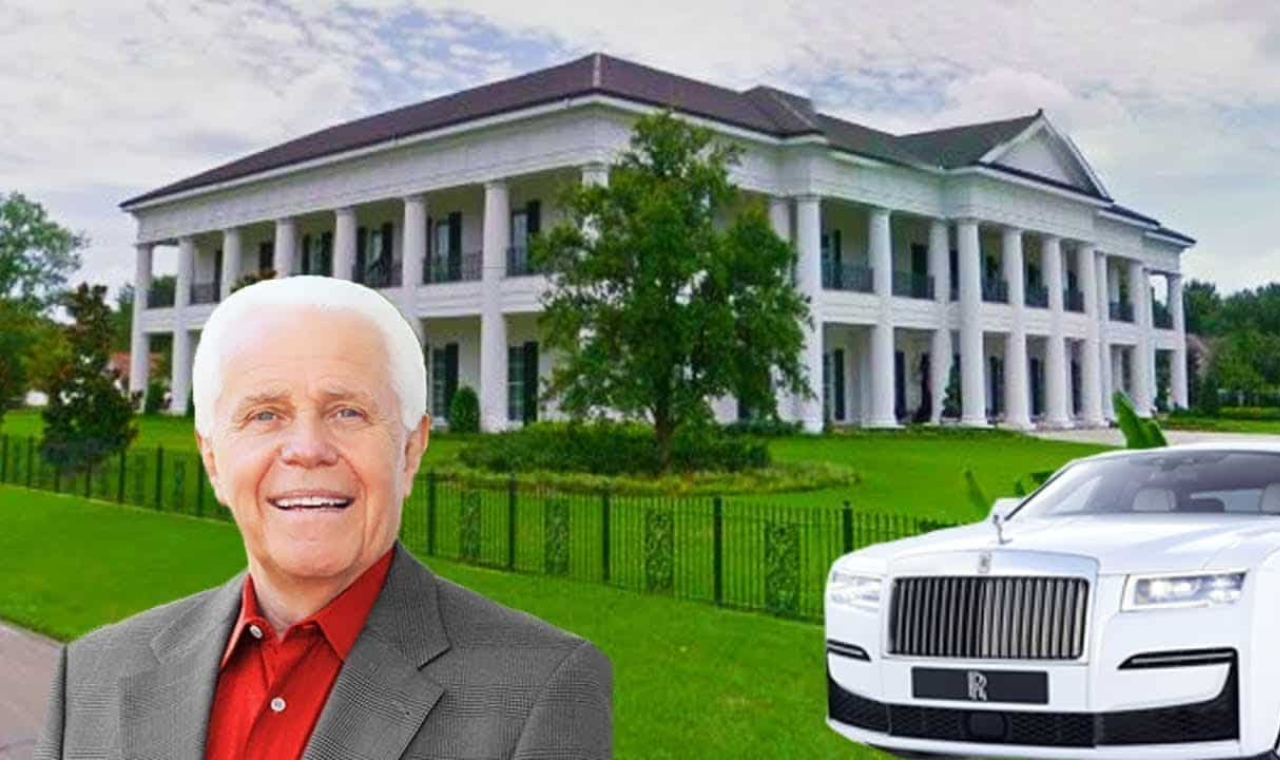Table of Contents
In the fast-paced world we live in, the concept of stepping back, observing, and letting things unfold without rushing to act seems almost alien. The phrase “learn to sit back and observe. not everything need – tymoff” carries profound wisdom that is especially relevant in our current era. It speaks to the importance of mindfulness, patience, and discernment in our daily lives. This article will explore the significance of this philosophy, how it can be applied to various areas of life, and why embracing it can lead to a more peaceful and fulfilling existence.
The Urge to React
In today’s digital age, we are constantly bombarded with information, news, opinions, and updates. Social media alone is a relentless stream of content that can overwhelm the mind. This exposure often triggers an urge to react instantly to everything we see, whether it’s a controversial tweet, breaking news, or a friend’s life update. The pressure to respond can feel immense, but it’s important to recognize that not everything needs a reaction.
When you learn to sit back and observe, you give yourself the space to process situations fully before engaging. This doesn’t mean indifference; it means taking a moment to assess whether a response is truly necessary. By doing so, you prevent unnecessary stress and maintain your emotional energy for matters that genuinely require your attention.
Practicing Patience and Mindfulness

Patience is an undervalued virtue in modern life. Society often rewards those who act quickly, but sometimes the best course of action is to do nothing at all—at least not immediately. The philosophy of “not everything needs” teaches us the art of waiting. Instead of jumping into a situation headfirst, we allow it to unfold naturally, watching carefully to see how things evolve on their own.
Mindfulness plays a crucial role here. When you are mindful, you are present in the moment, fully aware of what is happening around you without judgment. Mindfulness allows you to observe your surroundings and your internal reactions calmly, creating a space between the stimulus (what’s happening) and your response. In that space lies the power to choose wisely.
Understanding Emotional Reactions
Emotions are powerful forces that often drive our actions, sometimes before we’ve had a chance to think things through. Learning to sit back and observe helps you understand your emotional responses better. When something happens that triggers an emotional reaction—whether it’s anger, frustration, excitement, or joy—taking a moment to sit back can help you assess why you feel that way and whether your emotions warrant an immediate response.
For instance, imagine a heated argument at work. Your instinct might be to jump in and defend your position immediately. However, by applying the principle “learn to sit back and observe. not everything need – tymoff,” you allow yourself time to calm down and evaluate the situation more objectively. You may realize that responding in the heat of the moment could escalate the conflict rather than resolve it. Taking a step back enables you to respond more thoughtfully.
Enhancing Relationships
One of the greatest applications of this philosophy is in relationships, whether with family, friends, or colleagues. Sometimes, people don’t need advice or solutions; they simply need someone to listen and understand. By sitting back and observing, you give others the space to express themselves fully without feeling judged or interrupted. This act of patience and observation can strengthen relationships by fostering trust and empathy.
For example, a friend might come to you with a problem. Instead of immediately offering advice or trying to fix things, sit back and listen. Pay attention to their body language, tone of voice, and the underlying emotions behind their words. Often, they may just need a sounding board, and your quiet observation can be more supportive than any advice you could offer.
Improving Decision-Making
When you give yourself the space to observe rather than react impulsively, you naturally improve your decision-making skills. Acting too quickly, especially in stressful situations, can lead to rash decisions that you might regret later. On the other hand, taking the time to sit back allows you to gather more information, weigh the pros and cons, and make a more informed choice.
Consider how this applies to personal finance. Imagine you come across a hot investment tip or a limited-time offer that seems too good to pass up. The impulse might be to act quickly before the opportunity disappears. But by taking a step back and observing, you allow yourself time to research, assess the risks, and determine whether the decision aligns with your long-term goals. This mindful approach can prevent costly mistakes.
Navigating Social Media and Information Overload

Social media is a breeding ground for instant reactions. It’s easy to get sucked into online debates, feel the pressure to “like” or comment on posts, or compare your life to others based on their curated profiles. However, not every post, comment, or notification demands your attention or response.
By learning to sit back and observe, you can detach yourself from the pressure of constant engagement. Instead of scrolling mindlessly through feeds, take a moment to observe your emotions as you consume content. Ask yourself if reacting will add value or if it’s better to simply observe and move on. Over time, this practice can reduce feelings of anxiety or inadequacy that often accompany social media use.
Cultivating Inner Peace
Ultimately, the wisdom behind “learn to sit back and observe. not everything need – tymoff” is about cultivating inner peace. When you let go of the need to control or react to everything around you, you free yourself from unnecessary stress. Life becomes more peaceful when you realize that not everything requires your input or action.
This mindset doesn’t mean being passive or disengaged. It’s about discerning when to act and when to step back. Some situations do require immediate attention, but many do not. By practicing this discernment, you conserve your energy for the things that truly matter.
Learning from Nature
Nature is a perfect teacher when it comes to sitting back and observing. The natural world operates in cycles and processes that unfold in their own time. Trees grow, seasons change, and animals adapt to their environments without rushing or forcing outcomes. By observing nature, we can learn the value of patience and the importance of allowing things to develop organically.
For example, imagine planting a seed. You can’t force it to grow faster by constantly checking on it or watering it excessively. It will grow at its own pace, and your role is to provide the right environment and then observe as it naturally flourishes. The same principle applies to many aspects of life, whether it’s a personal project, a relationship, or your career.
How to Start Practicing “Sit Back and Observe”
Incorporating this philosophy into your life requires practice, especially if you are used to acting quickly or feeling the need to control situations. Here are some steps to help you get started:
- Pause Before Reacting: When faced with a situation that triggers an emotional response, take a deep breath and count to ten before responding. This simple act of pausing creates space for observation.
- Practice Mindfulness: Engage in mindfulness exercises, such as meditation or mindful breathing, to strengthen your ability to stay present and observe your thoughts without judgment.
- Detach from Social Media: Limit your social media use or take breaks from it. Use the time to observe how your mind feels without the constant stream of information and comparison.
- Listen More: In conversations, make a conscious effort to listen more than you speak. Observe the other person’s emotions and body language before formulating a response.
- Embrace Patience: Remind yourself that not everything requires an immediate solution. Trust that some situations will resolve themselves in time if you allow them to.
Conclusion
The idea behind “learn to sit back and observe. not everything need – tymoff” is a reminder that life doesn’t always require our constant intervention. By practicing mindfulness, patience, and observation, we can navigate the world with greater clarity and peace. Not every situation demands immediate action, and by learning to sit back, we often find that things work out better when we give them time and space. In a world that constantly urges us to do more, the true wisdom may lie in doing less.
Here are 10 frequently asked questions (FAQs) related to the article on “Learn to Sit Back and Observe: Not Everything Needs Your Immediate Action – Tymoff”:
1. What does “learn to sit back and observe” mean?
“Learn to sit back and observe” means taking a step back in situations, being mindful, and allowing things to unfold before reacting. It emphasizes patience, mindfulness, and the ability to assess situations without immediately jumping into action.
2. Why is it important to not react immediately to everything?
Not reacting immediately allows you to process situations more thoughtfully. It helps prevent emotional, impulsive decisions and allows you to respond with clarity and wisdom. This practice reduces stress and improves decision-making.
3. How can sitting back and observing improve relationships?
By sitting back and observing, you become a better listener and more empathetic. Instead of rushing to offer advice or solutions, you give the other person space to express themselves fully, which fosters trust and strengthens relationships.
4. How can practicing mindfulness help me sit back and observe?
Mindfulness allows you to stay present in the moment, helping you observe your surroundings and emotions without judgment. This mental clarity helps you detach from the need to react impulsively, giving you the time to think and respond more appropriately.
5. What role does patience play in sitting back and observing?
Patience is essential because it allows you to wait and watch situations unfold without feeling the urge to act immediately. By practicing patience, you can make more informed and thoughtful decisions instead of rushing into action.
6. How can sitting back and observing benefit decision-making?
When you sit back and observe, you give yourself the time to gather information and evaluate a situation carefully. This leads to better decision-making as you’re not rushing based on initial emotions or incomplete information.
7. How can I apply the philosophy of “learn to sit back and observe” in my daily life?
You can apply this philosophy by pausing before reacting in any situation, whether at work, in relationships, or when faced with stressful news. Practice mindfulness, limit your social media engagement, and focus on listening more in conversations.
8. What are the dangers of reacting too quickly in situations?
Reacting too quickly, especially in emotional or stressful situations, can lead to impulsive decisions that you may regret later. It can also escalate conflicts or create misunderstandings that could have been avoided with a more thoughtful response.
9. How can sitting back and observing help with social media and information overload?
By sitting back and observing, you detach from the need to constantly engage with or react to content on social media. This reduces anxiety and stress, helping you focus only on the information or interactions that are genuinely important.
10. What are the long-term benefits of learning to sit back and observe?
Long-term benefits include improved mental clarity, better decision-making, stronger relationships, reduced stress, and the ability to maintain emotional balance in challenging situations. This practice can lead to a more peaceful and fulfilling life.
These FAQs provide a concise understanding of the core concepts discussed in the article.








